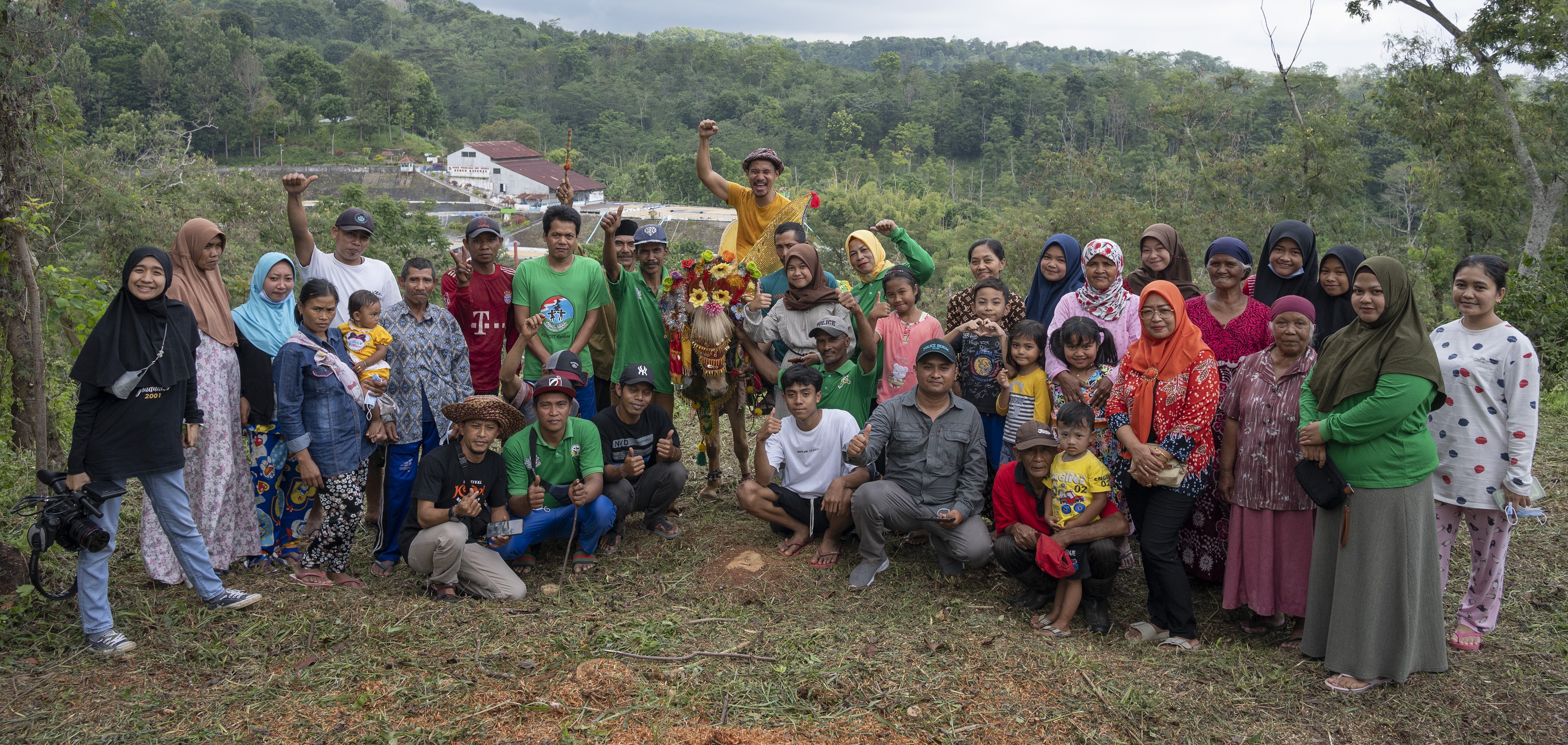
Rusini, a housewife and the treasurer of the Nira Kamukten – a Fairtrade coconut producer organization, dedicates herself to the cooperative. Her struggle to introduce the cooperative to coconut sugar-producing farmers was not easy. When Rusini and her friends initiated the establishment of the Nira Kamukten Cooperative, the community doubted the future of the cooperative, because based on previous experience there were no cooperatives that were truly successful due to financial problems that the management could not be held accountable for.
The journey started with introductions through community meetings, which at that time were still very sensitive and only a few farmers were willing to join and register as members. The coconut sugar business, managed by the cooperative, also faced major obstacles due to a lack of capital. Her husband was a little skeptical in the beginning as she had to leave her children to go to work and she had no definite income from the cooperative.

However, the community’s doubts became a motivation for Rusini and her friends to continue to promote the business and they were able to gradually break the community’s stigma about cooperatives only seeking their own profit. Though Rusini must carry out the dual role of being a housewife as well as a cooperative administrator, she makes sure to complete all the household chores before leaving to work at the cooperative. In the evening she spends time with her husband and children and this is her routine that is carried out every day. Today there is a regular income and her husband supports her active life and passion for the cooperative.
The cooperative has been operating for 10 years and the trust of members has been built and is getting tighter, product sales are going well, and the benefits felt by members are numerous since the existence of the cooperative.
With guaranteed product sales, profit from the business, premium funding, easier agricultural needs, and access to finance, more farmers want to join as members, and not everyone who registers can join immediately, they must go through the trial phase and comply with organic regulations for one year.
In the future, Rusini hopes that more young people will be interested in joining and continuing their struggle for coconut sugar farming as a cultural heritage and the main source of livelihood for the people there. With the programs implemented by the cooperative, it is hoped that it will attract young people to play an active role in agriculture and maximize the potential of nature for establishing a sustainable farming community.

Turio, is another farmer member of the Nira Kamukten cooperative. A 26 year old who also works as a staff at a farmer’s shop, a business established by the cooperative to meet the agricultural and consumption needs of its members.
After graduating from school, Turio wandered out of his village for several years, working for a meager income, but enough to support his parents. He finally returns to the village to get married, and starting a family meant he could no longer travel far from the village. With his only ability to tap coconut sap-a trait not taught by his father but rather learned by him through watching other sappers, Turio continues the coconut sugar farming.
However, the income generated was just enough for him to meet the household expenses of his family which included his mother, wife, and son.

Since his joining at Nira Kamukten cooperative Turio receives a fixed price for his product and even provides jobs to supplement his family’s income. Even though deciding to return to Mentores, his village was the only last resort, Turio feels that coconut farming is interesting and has a great historical value that has been passed down for generations, a cultural heritage that must be preserved. Today he is starting to realise that agriculture is one of the main pillars of the country’s economy.




